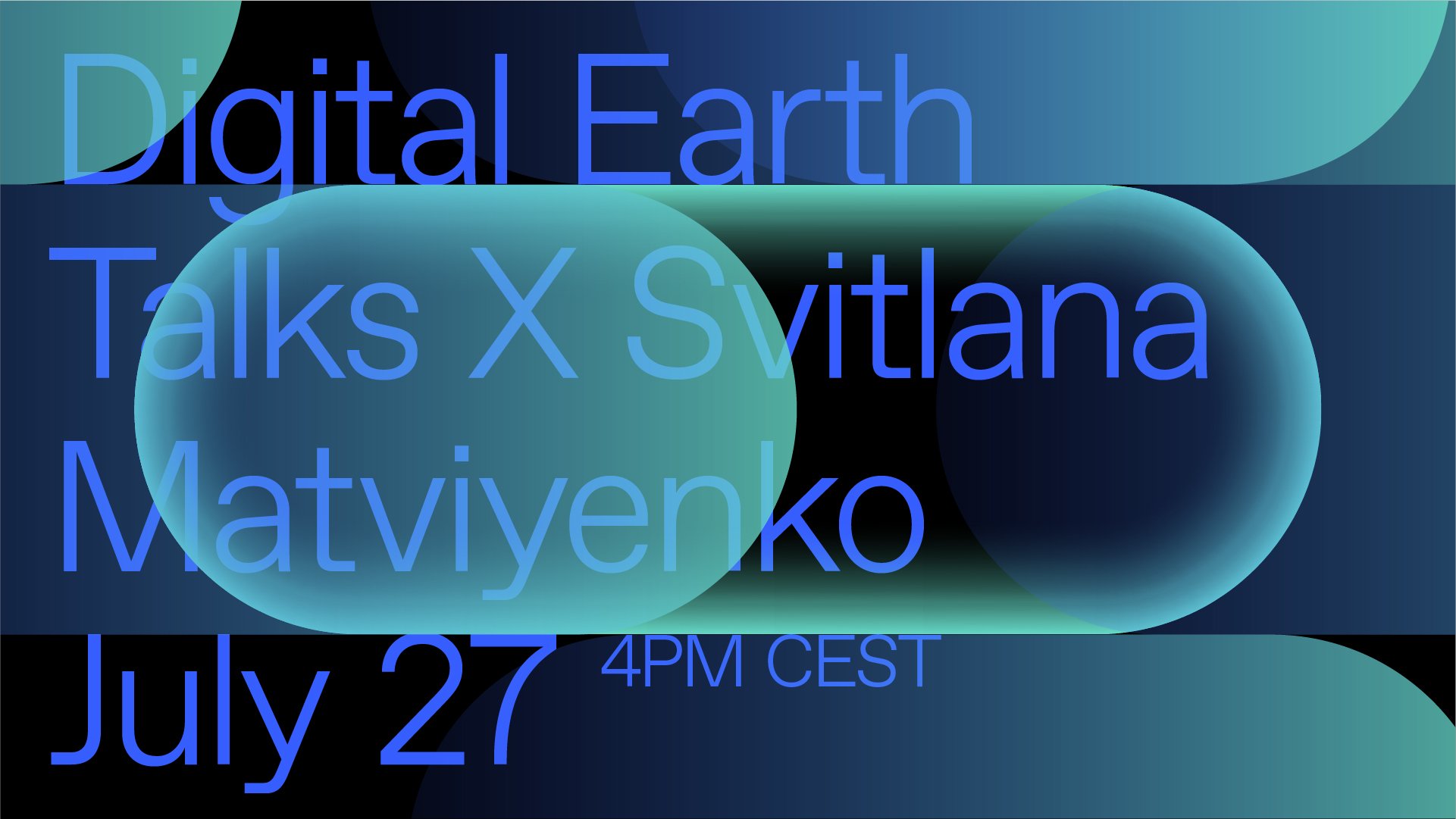#2 Digital Earth Talks x Chakanetsa Mavhunga
In the second talk, Chakanetsa Mavhunga asked us to refuse to be just critical thinkers that are not doers, or doers that are not critical thinkers, and instead become critical thinker-doers. We hosted a live discussion with Chakanetsa and the fellows, moderated by Nora N. Khan.
Dare to invent the future: knowledge in the service of and through problem-solving
We must dare to be critical thinker-doers who know in order to solve and know through solving.
Chakanetsa argued that knowledge based on problem-solving fundamentally departs from the western-and-white mode of knowledge production and curriculum originating in the European enlightenment. Crucially, this mode has failed Africa and black communities. He implored his audience, the younger generation of African ancestry, to hold their chins up and dare to invent the future; to be critical thinker-doers. Inspired by the revolutionary Thomas Sankara, Chakanetsa asked us to locate ourselves in our own community, not as researchers or diagnosticians of problems for others to solve, but to produce knowledge in the service of and through problem-solving with the people.
Participants
Speaker • Chakanetsa Mavhunga is an Associate Professor of Science, Technology, and Society (STS) at MIT currently directing the founding of Research || Design || Build (RDB), a rural community-based research and innovation institute in Zimbabwe dedicated to people-initiated rural development.
Moderator • Nora N. Khan is a writer of criticism on digital visual culture and philosophy of emerging technology. Her research specifically focuses on experimental art and music practices that make arguments through software, machine learning, and artificial intelligence. Khan is a professor at Rhode Island School of Design, in Digital + Media; she teaches graduate students critical theory and artistic research, critical writing both for artists and designers, and history of digital media.
Fellow • Alexandra Anikina is a researcher, media artist, filmmaker, and curator working with the themes of algorithmic culture and critical posthumanities. Anikina uses the history of Soviet media technologies to probe the pervasive Western cosmologies of technological progress and to critique the temporalities of data governance and control.
Fellow • Antonio Macotela is a multidisciplinary artist, exploring the idea of economy as a mediatory device through which social relations are established. Macotela draws a parallel between the Q’aqchas - a group of pirate ore miners in the eighteenth century - and a group of contemporary hackers in Spain. Utilising the figure of the hacker, they explore narratives of resistance and strategies of subversion.
Fellow • Nolan Oswald Dennis is an interdisciplinary artist. They engage with the planet from a position of estrangement, where access to the planet as a spiritual-material object has been denied, and proposes reengineering tools and methods of measuring, monitoring, modelling, and otherwise remotely accessing the world for a project of alternative planetary imagination linking black and indigenous techno-cultures in Africa, Asia, and Latin America.
Fellow • Sahej Rahal is primarily a storyteller. His performances, installations, and AI programs narrate a mythology that interrogates narratives shaping our present. Rahal will create a mythology that remixes folklore, urban legends, and science fiction to interrogate the mythic narratives that construct our digital reality.
Fellow • Sheila Chukwulozie defines herself as an Igbo Cyborg contending with the state of being simultaneously fixed and fluid, object and subject, matter and spirit, digital and analog, able and unable, native and migrant. They are working with Uzoma Chidumaga Orji. They will explore a paradigm of verbal technology rooted in Igbo cosmology, and specifically in the concept of time. Through storytelling, linguistic excavations, and investigations of perceptual apparatuses, the duo advances the notion of Igbo proverbs as a technology.
Fellow • Uzoma Chidumaga Orji creates visual metaphors, scenography, and interactive digital experiences that interrogate post-colonial identity crises. They are working with Sheila Chukwulozie. They will explore a paradigm of verbal technology rooted in Igbo cosmology, and specifically in the concept of time. Through storytelling, linguistic excavations, and investigations of perceptual apparatuses, the duo advances the notion of Igbo proverbs as a technology.
Fellow • Sondra Perry is an interdisciplinary artist who works with video, computer-based media, and performance. She explores themes of race, identity, family history, and technology. Perry will unpack the relationship between industrial metal minerals and geological time, slavery, and industrialised labour in the United States and beyond. Recently, in response to the Black Lives Matter movement and racial violence, their project questions the role of art and its capacity for causing change.
Fellow • Temitayo Ogunbiyi explores environment, line, and representation. Moving between mediums such as drawing, painting, and installation, her work links current events, anthropological histories, and botanical cultures. Ogunbiyi confronts systems of surveillance and behaviour in digital space through notions of play. By considering the Planetary Sensorium as a monitoring structure birthed from Western constructs, she investigates how play can subvert and highlight its pervasive surveillance systems.
About Digital Earth Talks
How do we imagine a humane Digital Earth to come? Join the discussion and explore the visions of leading voices in art, tech, and philosophy from around the world.
Discover our past events here:




